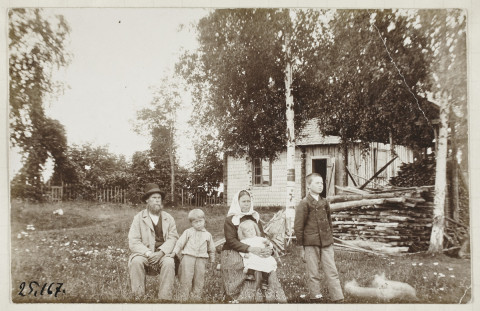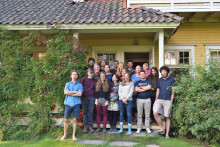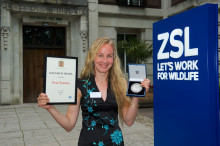
Euan Young, Ellie Chesterton, Virpi Lummaa, Erik Postma and Hannah L. Dugdale published a paper in Proc R Sob B: The long-lasting legacy of reproduction: lifetime reproductive success shapes expected genetic contributions of humans after 10 generations
Abstract
An individual's lifetime reproductive success (LRS) measures its realized genetic contributions to the next generation, but how well does it predict this over longer periods? Here we use human genealogical data to estimate expected individual genetic contributions (IGC) and quantify the degree to which LRS, relative to other fitness proxies, predicts IGC over longer periods. This allows an identification of the life-history stages that are most important in shaping variation in IGC. We use historical genealogical data from two non-isolated local populations in Switzerland to estimate the stabilized IGC for 2230 individuals approximately 10 generations after they were born. We find that LRS explains 30% less variation in IGC than the best predictor of IGC, the number of grandoffspring. However, albeit less precise than the number of grandoffspring, we show that LRS does provide an unbiased prediction of IGC. Furthermore, it predicts IGC better than lifespan, and accounting for offspring survival to adulthood does not improve the explanatory power. Overall, our findings demonstrate the value of human genealogical data to evolutionary biology and suggest that reproduction—more than lifespan or offspring survival—impacts the long-term genetic contributions of historic humans, even in a population with appreciable migration.


